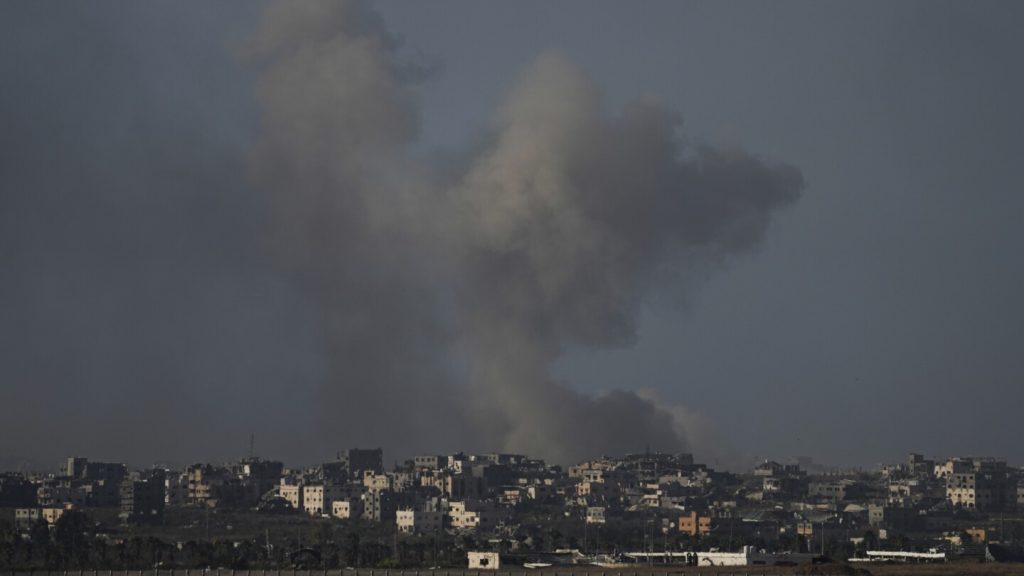France’s government has defended its decision to prohibit Israeli companies supplying weapons to conflict zones in the Middle East from exhibiting at an upcoming trade fair near Paris. Organizers of the naval defense exhibition, Euronaval, stated that Israeli firms could participate if their products were not used in military operations in Gaza and Lebanon. This decision was attributed to recent French government actions. French Foreign Minister Jean-Noël Barrot clarified that this policy was not a boycott of Israeli companies but rather a measure to prevent the promotion of weapons used in ongoing conflicts while France advocates for a ceasefire.
Barrot emphasized that the French government communicates regularly with Israeli authorities and has indicated that participation by Israeli companies should align with the balance of not promoting weapons used in Gaza and Lebanon. Companies whose equipment is not involved in offensive actions in these regions will be allowed to have stands at the exhibition. Israeli Foreign Minister Israel Katz criticized the restrictions as unacceptable and anti-democratic, urging French President Emmanuel Macron to overturn the decision. However, Barrot reiterated France’s support for Israel’s right to defend itself, citing the country’s continued export of components used in Israel’s Iron Dome air-defense system.
Despite France’s support for Israel’s defensive capabilities, the government believes it would be contradictory to allow the promotion of weapons used in Gaza and Lebanon while calling for an immediate ceasefire in those regions. The French minister highlighted the need to prevent civilian casualties and damage in conflict zones. While France acknowledges Israel’s right to self-defense, it also aims to maintain a balanced approach that does not contribute to the escalation of conflicts in the Middle East. This decision reflects France’s commitment to promoting peace and stability in the region, even as it navigates delicate diplomatic situations.
The controversy surrounding the exclusion of Israeli companies from the trade fair underscores the complex geopolitical dynamics at play in the ongoing conflicts in the Middle East. France’s decision to restrict the participation of certain companies reflects its efforts to align its foreign policy with principles of promoting peace and preventing further escalation of violence. The French government’s emphasis on the humanitarian impact of weapons used in conflict zones highlights the ethical considerations guiding its decision-making process. As tensions continue to simmer in the Middle East, France’s stance serves as a reminder of the challenges facing countries seeking to balance their support for allies with broader commitments to international peace and security.
The response from Israeli officials to France’s decision illustrates the deep-rooted disagreements and sensitivities surrounding the conflicts in Gaza and Lebanon. Israeli Foreign Minister Israel Katz’s criticism of the restrictions as anti-democratic reflects Israel’s concerns about being singled out and isolated in the international arena. The call for Western solidarity with Israel reflects broader efforts to garner support in a complex geopolitical landscape. The interactions between France and Israel on this issue highlight the intricacies of diplomatic relations and the challenges of navigating conflicting interests in a global context.
As the situation in the Middle East remains volatile, the decisions made by countries like France regarding the participation of Israeli companies in trade fairs serve as a microcosm of broader geopolitical tensions. The balancing act between supporting a strategic ally like Israel while also advocating for peace and stability in conflict zones underscores the complexities of international relations. France’s defense of its decision in light of humanitarian concerns and the need for a balanced approach reflects the ongoing efforts to address the root causes of conflicts and promote dialogue and diplomacy as pathways to sustainable peace. The controversy surrounding the trade fair highlights the ongoing challenges of navigating foreign policy in a rapidly changing global landscape.


